Svitlana Yehorova
There are people who are like an open book. And there are those like our active volunteer, Svitlana Yehorova.
She is reserved and balanced, yet sociable and persistent. She resembles a book from the Timeless Classics series. When you open it, you will find volumes of life experience and hundreds of pages of interesting adventures that are valuable despite the century outside the window.
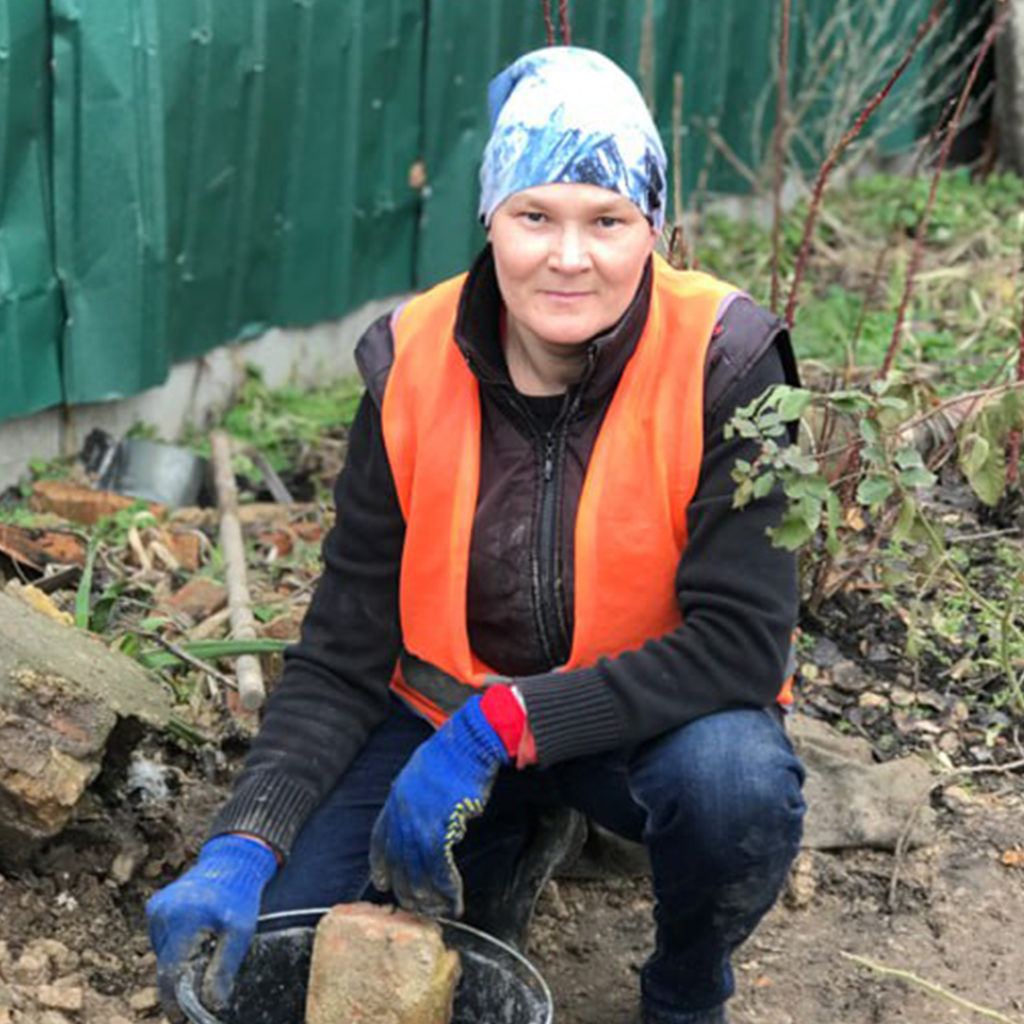
Read #B50heroes interview with Svitlana Yehorova:
- how she ended up in B50 after digging trenches in the Kyiv city;
- why she was forced to leave her favorite profession as a turner;
- about the advantages and disadvantages of a “nomadic” childhood;
- what it’s like to be a bookseller in the book market.
| Name | Svitlana Yehorova |
| City | Kyiv |
| Age | 52 years old, birthday – July 23 |
| Profession | a turner, now works in retail, and is an active volunteer at B50 |
| Hobbies | likes to do things with her own hands, assemble models |
| Sea or mountains? | prefers the sea with mountains, because she likes outdoor activities |
| Childhood sport | athletics, long jump, swimming, volleyball |
| Favorite food | scrambled eggs, fried potatoes |
— Svitlana, where were you on February 24? How did you know that russia’s large-scale invasion of Ukraine had begun?
— At home, like many people. We were going to work, but a colleague called and said that there was a war. We turned on the news and… war. And then we heard the sounds and everything else.
Honestly, I still don’t understand why the hell they did that. I can’t find any arguments. Except, indeed, the greatness of some asshole that clouded his mind. They had neither the strength nor the ability to conquer Ukraine. So why was it necessary? Only to destroy one nation. And this is nonsense! That’s why I couldn’t believe it until the 24th.
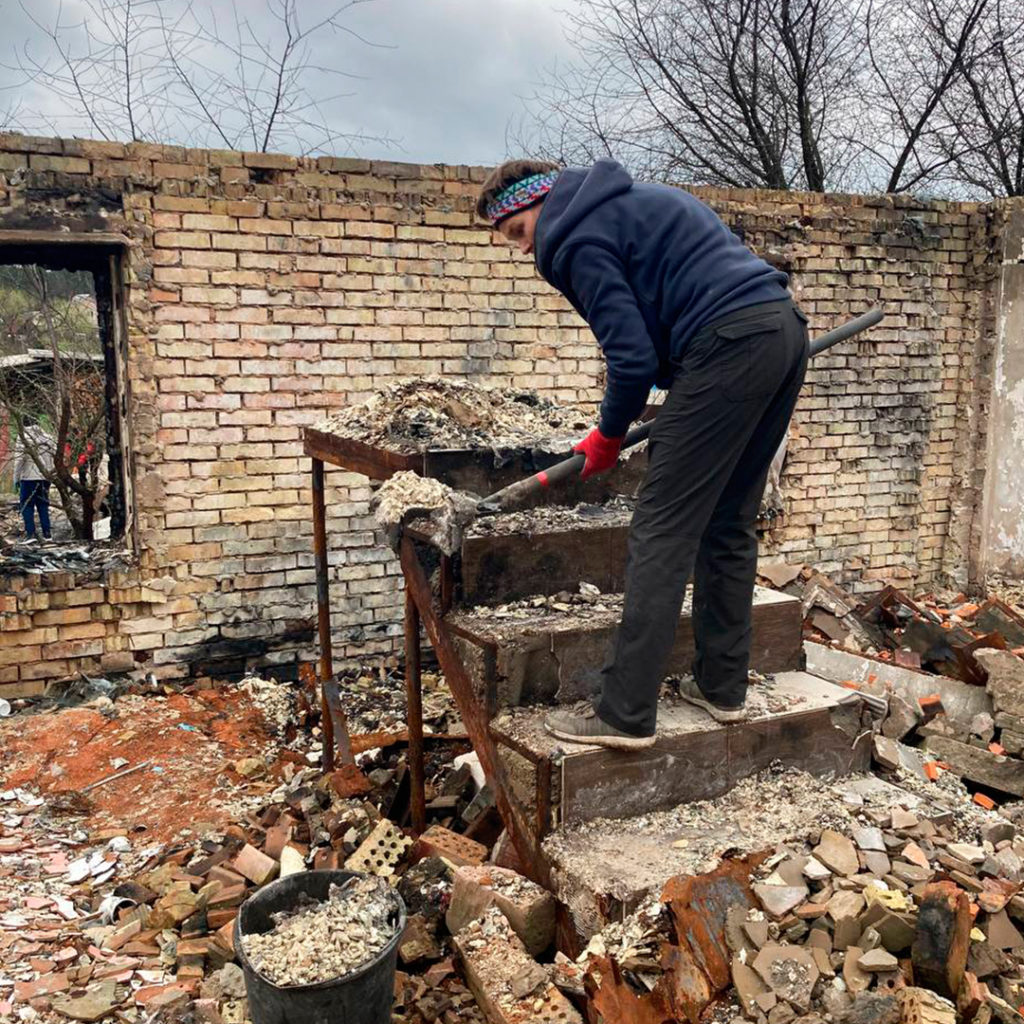
For the first week, we were sitting at home trying to figure out who was where among my friends. Within a week, our house, an old five-story building, felt like everyone had left. We only went to the store, helped our old neighbors, who were in their 80s, deaf and blind.
Once I called my friend to find out how he was doing. And he said: “We are going to meet here at B50 (the secret address of one of the capital’s TDF headquarters (The Territorial Defence Forces – where the founders of the B50 community met – ed.) I think: TDF is great, but the queues are terrifying. And anyway, I’m over 50 years old 🙁 But if it’s necessary, I’ll go!
The first time I walked from Darnytsia to Bratyslavska (because no transport was running) and I was just in time to see the construction of the barricade defenses. And then we started regularly going with the TDF to dig trenches. We worked as hard as we could, because we were still expecting a possible attack on Kyiv. It’s not that easy physically, especially when you come across some roots. And since we were digging where there was mostly sand, we also had to knock down shields and put them up so that it would not crumble, because we would have trouble. But I’m physically tough: I can handle both digging and lifting a bag. I dug in the Lisovyi Kyiv District, in Troieshchyna, in Muromets Park.

— Trenches, trenches, trenches, and then you end up in B50. How did it happen? Where did you see the information about volunteering with us?
— The rashists withdrew from Kyiv, and the digging of trenches seemed to be over. People moved away, started going to work, many joined the Armed Forces, and some still got into the TDF. One day I came across a rubble removal project in Irpin, applied, but they had already recruited volunteers. And then I received an invitation to the B50 chat. Somehow I ended up here.
On the first day of volunteering, we had to disassemble the furniture and help transport it to Borodianka. We did it quickly and then went to Moshchun. And, as I understand it, after that you did not go to Borodianka again.
It seems to me that such settlements (Moshchun, Borodianka – ed.) allowed Kyiv to survive. And, apparently, I was driven by a sense of guilt towards them. I feel sorry for all the affected owners. I really understand that few will ever recover. If you have family and they can help, yes. But there are elderly people who are left alone. That’s it… People invest not only money and hands, but also their souls in a house. And to be left without anything, of course, is difficult.
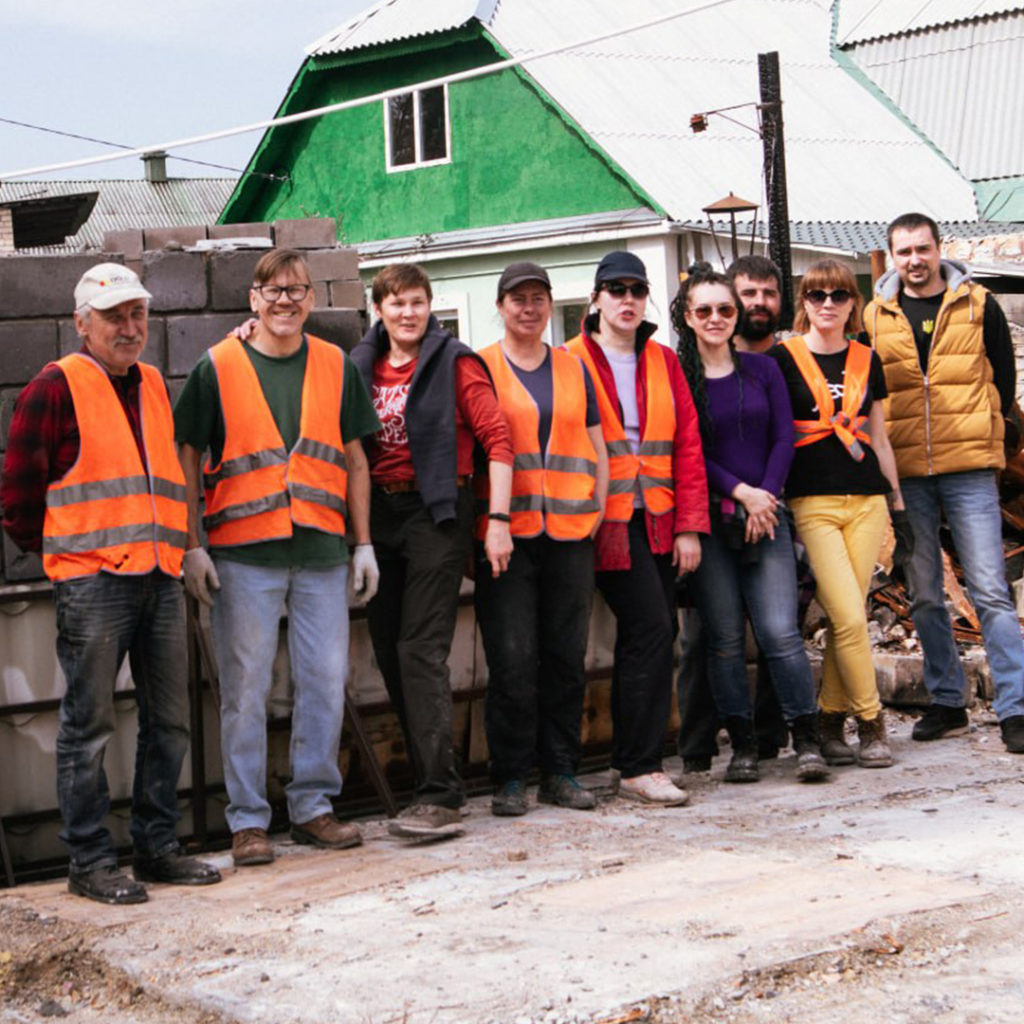
— What motivates you to volunteer so regularly? You’ve just crossed the 50 volunteer trips mark!
Because sitting at home and doing nothing is very hard! I would rather do physical labor to reset my brain. In fact, I still don’t sleep well: there is a lot of negative information, a lot of people I know who died… So I have to fight it.
I’m generally a pretty reserved person. I don’t trust people very much. But I’m not going to volunteer to tell my terrible story, my boring life. I go to work, to help, to get a boost of energy for the whole week. And you learn something new. By the way, it’s interesting to work with Volodia and Andrii, because you can learn something. Although sometimes we just break down walls and carry bricks, you can always learn something new.
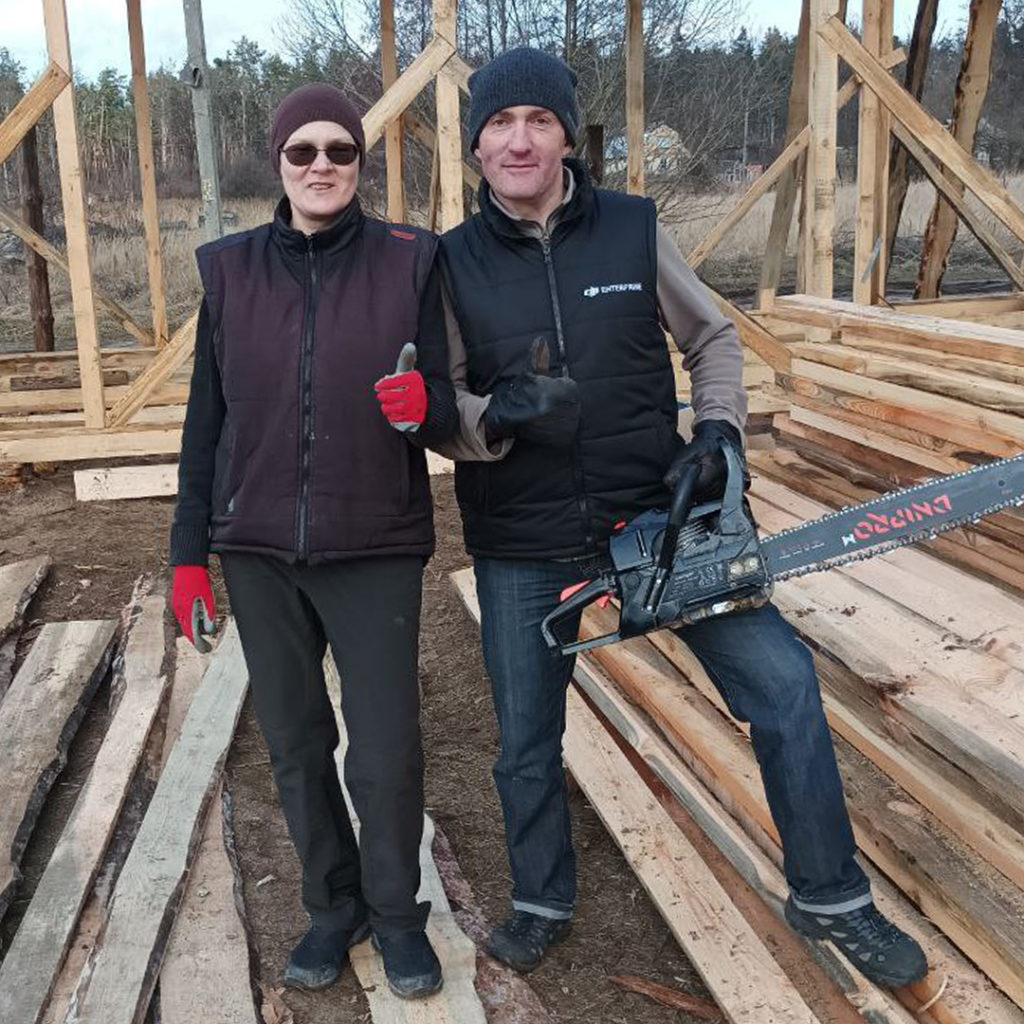
— You are a person who loves manual labor – to fix, repair, invent something. At B50, you were actively involved in every construction, repair, and renovation project. Where did this passion come from?
— Because I am a master turner by training. I was fascinated by turning since school. When I lived in the Crimea (in the 5th or 6th grade), we had a good school workshop. That’s where I started working with wood. I still like to make things, to tinker.
Later I graduated from college and worked in my specialty at factories in St. Petersburg and Kyiv. It was a very interesting profession back then! I worked at a branch of the Arsenal Plant, at Almaz. I used to run from the beginning of the machine to the end (which is about 6 meters!) and undress as I went, because it would chew up my clothes and something could happen. The safety procedures at the plant had to be followed very carefully.
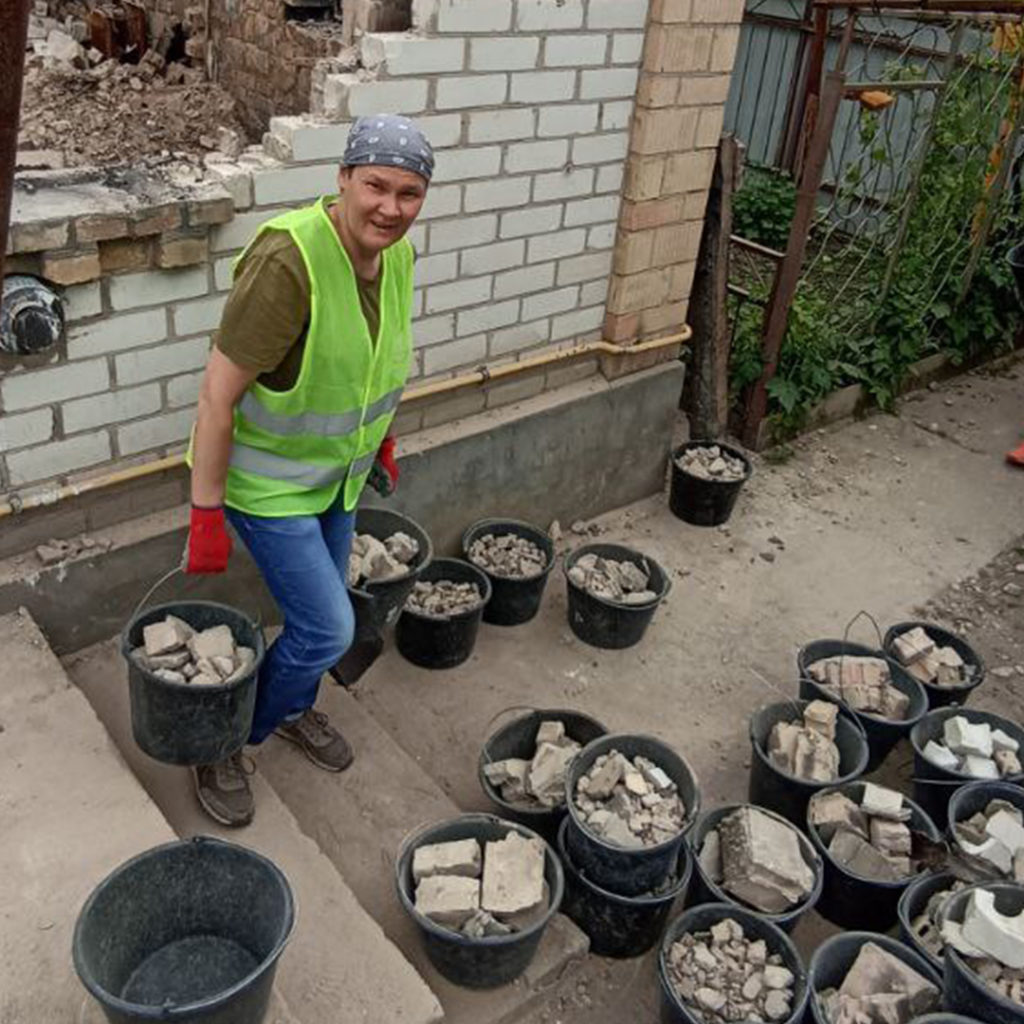
— For those who have never heard of Almaz, what did the plant do? You didn’t process diamonds there, did you?
— No, we were helping to make “artificial kidneys” – special devices for hemodialysis. We made the parts and assembled them elsewhere. I worked in Troieshchyna( Kyiv district – ed.), and I remember it when it was still under construction. Now, instead of Almaz, our Mint is located there.
Before that, when I worked in St. Petersburg, we assembled shielding for nuclear power plants. I remember spending the last six months there making orders for Germany. The workshops there were huge, just huge. Very hard work, but interesting. Especially at the end, when it all came together, when you see the result.
Once my friends invited me to go to Germany as a turner. But I had two months of experience in a military workshop (I was trained there to sharpen the muzzles of tanks), and they wouldn’t let me leave the soviet union.
— Stop! You were born in Kyiv, spent your childhood in Crimea, and then there was Petersburg. How did it happen?
My mother was a traveler – she used to take me everywhere as a child, mostly around the union. I had very weak lungs, and my mother was told that she needed to improve her child’s health. And if you were going to improve my health, where? In the Crimea. So she went there for the summer to work, and I was placed in a camp in the area.
Later, she got a full-time job in Yevpatoriia. And later we lived in Helendzhik, in Kamchatka: she went there for work, and I went with her.

— What was your mother’s profession that required so much travel?
— My mother worked as a simple nanny in a kindergarten, and worked a little bit at a construction site. She traveled the world until her last days! When she retired and returned to Kyiv, she traveled somewhere once or twice a year – to Turkey, Egypt, the Emirates, India… And this is a person who grew up in an orphanage and was visually impaired! My mother was found as a child on the street during the World War II.
My mom really wanted to travel, she saved money for her trips herself. She worked so hard in her life that she could afford it! The only thing we didn’t have time to do was go to Europe. For her 70th birthday, we wanted to take her on an excursion for a couple of weeks, buy a tour. But she got cancer, and it was too late.
By the way, I was sorting through her things recently and found a medal. I have known that she was a labor veteran for a long time. But I didn’t know that she was awarded an honorary order by the highest military command of Ukraine (she worked in the military archive for the last 10-15 years). My mother was tough on me, but she gave me everything she could and did. And then – go work, go study.

— How did you like this nomadic childhood? Every time a new school, new friends, new rules… One day it was Yevpatoriia, the next day it was Kamchatka. How did you feel about it as a kid?
— I’m fine in general. It’s now, with age, that I think about my home, but not before. To be honest, I didn’t really care about my health, but it was interesting by the sea. In the 9th grade, I was already scuba diving.
— Sveta, you have a part of your life where you are a turner, working in large-scale factories, completing important projects. And there’s a part of you where you’re a retailer, a profession you can’t call your favorite. When did that turning point happen?
— When the soviet union collapsed… There were no materials, many factories stopped, there was no work – few people needed turners. So I had to look for something. I worked as a salesperson for almost 25 years. I sold everything except food.
Most of all, I like selling books, so for a long time I worked at Petrivka (a metro station in Kyiv; now Pochaina – ed.), at the book market. I sold all kinds of literature-classics, modern prose, military literature, and fantasy. Of course, I read a lot of books-all the foreign authors who are now famous, the Nobel laureates. Pamuk, Murakami, Pavic.

The book market there has not been the same for the last 5 years. Previously, people used to come with their families on weekends to take a walk, buy books for themselves and their children, and exchange books.
— What does it mean to exchange a book?
— Well, there are authors you collect and re-read. For example, Remarque, I’ve read him 3-4 times, and there are things there that don’t lose their meaning over time, you look at the work differently, but it’s still interesting.
And there are books that you read and that’s it. You could exchange them for a fee if you read them carefully, or hand them in – the flea market is nearby. If a book cost, say, 30 UAH, you could return it for a nominal 5 UAH or pay extra and buy another one.
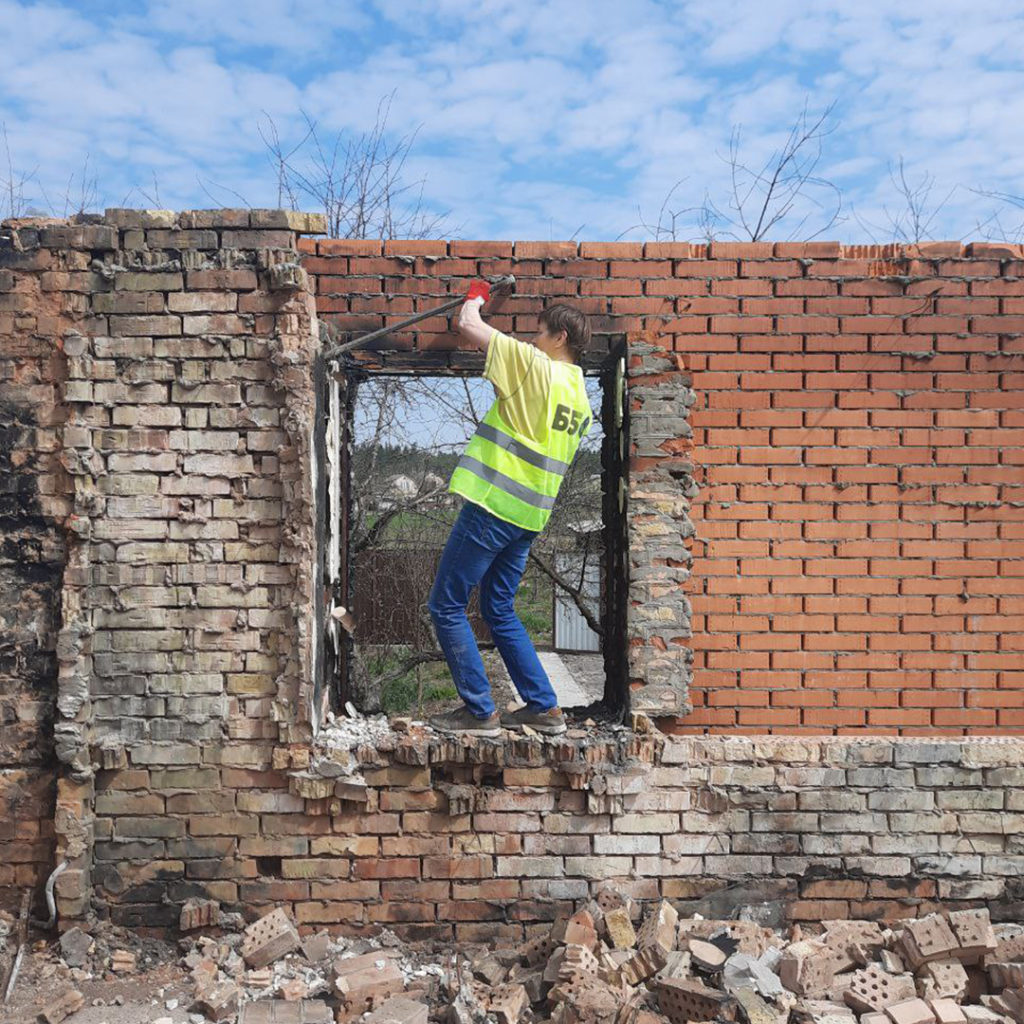
— When a customer comes to your outlet and sees 300 publications in the window, how do you help them navigate? How do you recommend what to read? After all, you need to have at least a basic understanding of what they are about, and ideally, read them yourself. But is it really possible?
— We had a guy named Ihor Ivanovych (unfortunately, he’s already dead), and we worked opposite each other. People would come not only to ask for advice, but also to argue about what they had read!
Yes, I don’t like the sales profession at all, but books are close to me, dear to me. I won’t brag, but many buyers listened to my advice, and it was always interesting to argue. We communicated with many customers, some of whom have become good friends.
If I’ve ever read a book, I can open it at any page and remember what it’s about. Although I may be a slow reader, I read with taste.
I don’t think books should be read quickly at all. Some people say that if I read less than 10 books in a month, I will lose respect for myself. Why? I understand the need to develop speed reading, but only if you need to study a lot of information. But, for example, what about reading fiction? Then you won’t enjoy those 10 books a month:(
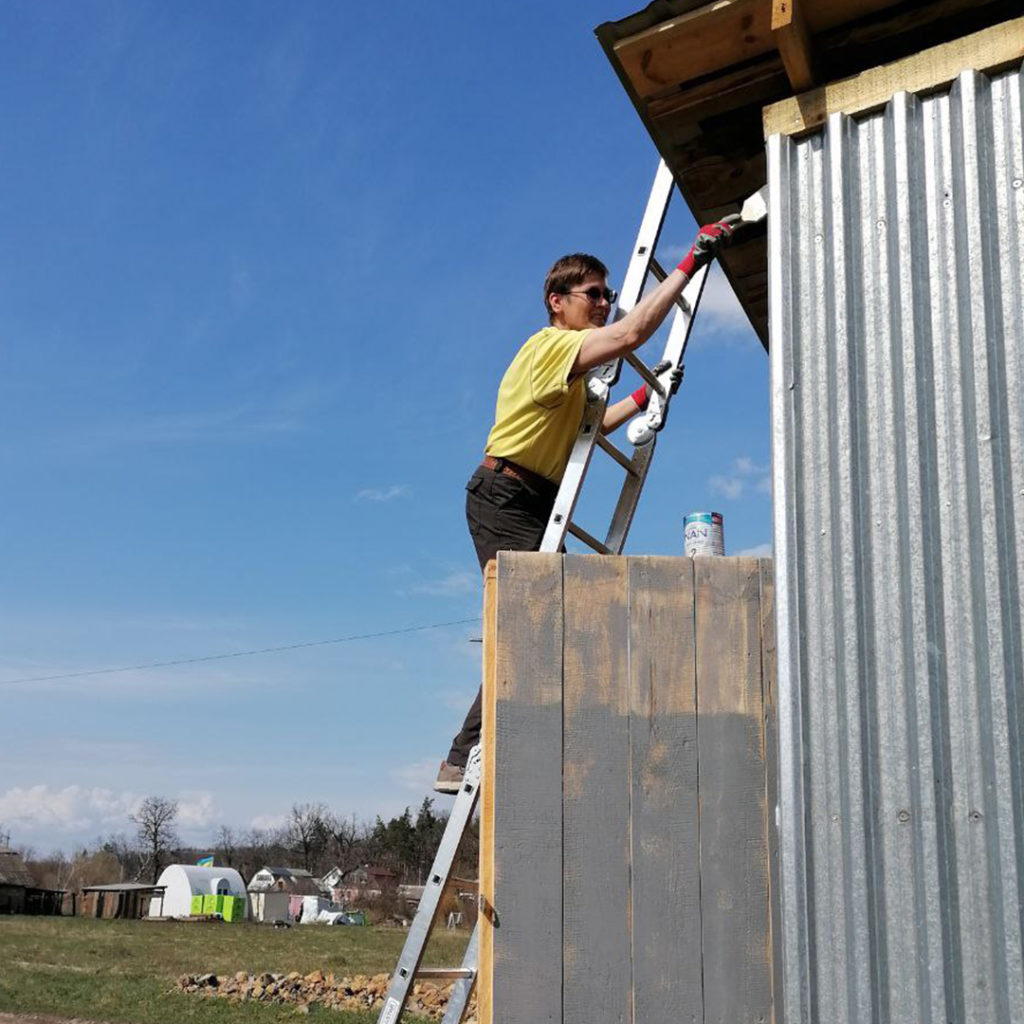
— Which book did you enjoy the most?
— Oh, you know, there are books that I remember very well, that make me want to cry.
It was a famous steampunk, even cyberpunk writer in narrow circles, Ian Banks, who described everything very “deliciously”. And I also have a good imagination, so when you read him, you just want to go to the toilet, “to talk to a friend.” Of course, I was shocked! That’s how people write interestingly, and raise social issues to a certain extent.
There are things that are considered classics, but for some reason few people know them. A good thing that struck me at the time was When I Was Dying. You can read it over and over again.
Nowadays books are so expensive that they become really valuable. To buy a good book now costs at least 500 UAH. For example, I respect Terry Pratchett, I have almost everything by him. A good edition of his books used to cost 80-90 UAH. Now they are much more expensive!
I have my own small library (compared to my mother’s, of course, it’s small). My friends, whom I trust and who read carefully, can borrow books from me and use them.
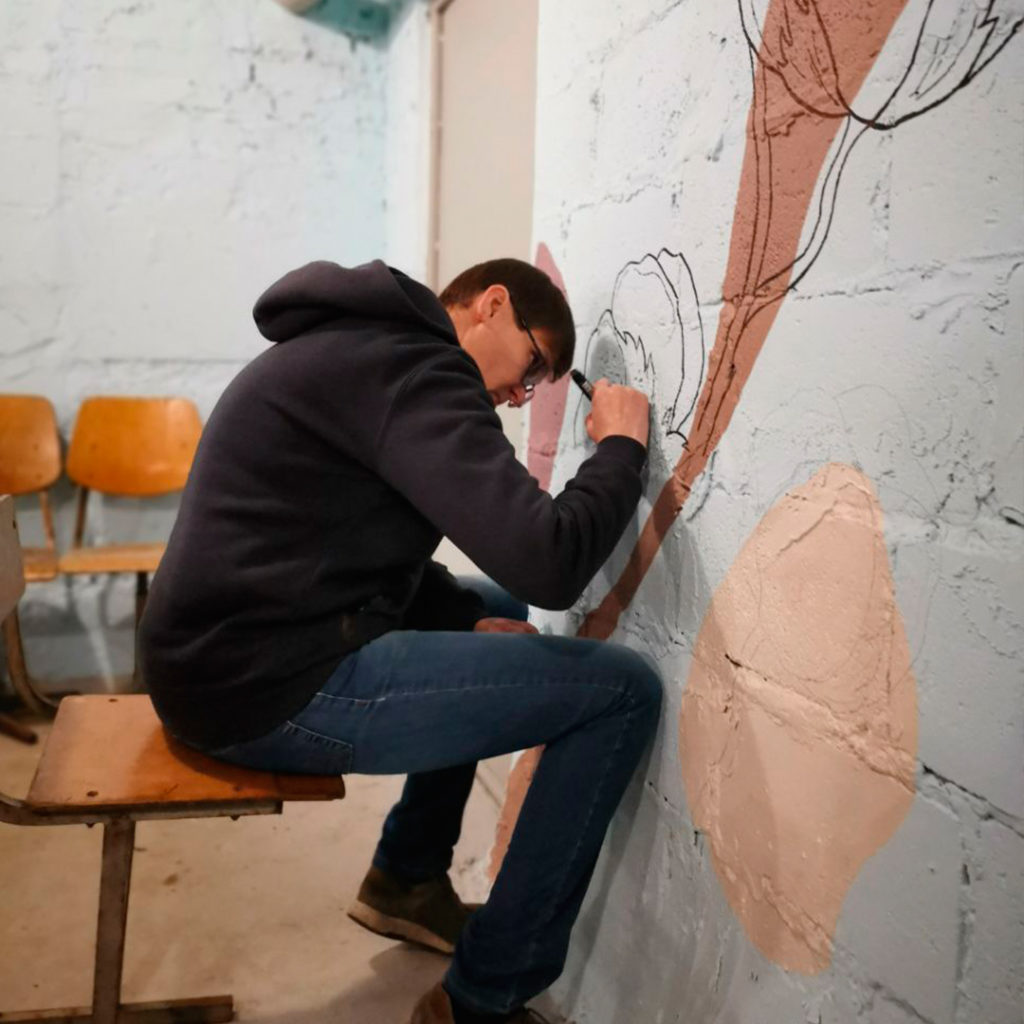
— As a person who has read a lot of literature (historical and military literature in particular), how do you view the current situation in Ukraine and how do you see its immediate future?
— I am a realist in this case. I understand that we may not end the war this year, but we cannot drag it out either. We really can’t! There are people who have become indifferent to the war. This is just terrible!
I don’t remember who said that there are 15% of people who hold one position, 15% who act like their opponents, and the rest are biomass, which follows those of these 15% who are more active. This is terrible… I don’t know what needs to happen for people to realize that they need to move. I don’t know, but I really hope that one day we will wake up and move in the right direction.
I will be in Kyiv. I understand that, in principle, we have to work. As Pasha says, “plow, plow and plow again.” I’m at the age where I just want to lie on the couch. I’m a lazy person, really. I can’t say what will happen next, but of course I have to strive for something.
The interview team:
- Coordinator – Anna Norynska
- Interviewer – Nataliia Hryniuk
- Transcriber – Kostiantun Zozulia
- Editor – Kateryna Lehka
- Build editor – Bohdan Holovchenko
- Translator – Yuliia Habdulova


